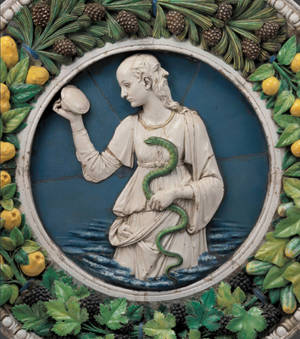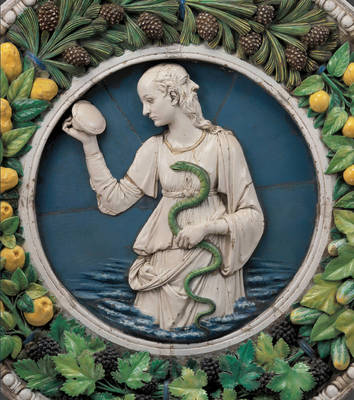
- Retrait gratuit dans votre magasin Club
- 7.000.000 titres dans notre catalogue
- Payer en toute sécurité
- Toujours un magasin près de chez vous
- Retrait gratuit dans votre magasin Club
- 7.000.0000 titres dans notre catalogue
- Payer en toute sécurité
- Toujours un magasin près de chez vous
Description
The brightly hued and technically sophisticated ceramics of a Renaissance master and his workshop
The glazed terra-cotta technique invented by Luca della Robbia, along with his exceptional skill as a sculptor, placed him firmly in the first rank of Renaissance artists in the fifteenth century. The Della Robbia studio produced dazzling multicolored ornaments for major Florentine buildings, delicately modeled and ingeniously constructed freestanding statues, serene blue-and-white devotional reliefs for domestic use, charming portraits of children and commanding busts of rulers, along with decorative and liturgical objects. Important patrons from the Medici family to the French court enhanced the reputation of the Della Robbia style and technique, which in turn inspired imitation by rival artists.
In recent years, renewed attention from art historians, backed by sophisticated technical studies, has reintegrated Della Robbia into the mainstream of Renaissance art history and illuminated the originality and accomplishments of the family's studio, which operated into the 16th century. This beautifully illustrated companion to the first major Della Robbia exhibition in the United States brings readers into the workshops of these ingenious artists to experience one of the great inventions of the Renaissance.
Luca della Robbia's (1400-82) invention of an innovative technique for creating glazed terra-cotta sculptures was a major scientific and artistic discovery of the Italian Renaissance. Passed down to family members and developed further by each generation, the closely held technique achieved new heights of refinement and durability in modeling and color, and was praised for combining elements of painting and sculpture into a new and (in Vasari's words) "almost eternal" medium.
Spécifications
Parties prenantes
- Auteur(s) :
- Editeur:
Contenu
- Nombre de pages :
- 176
- Langue:
- Anglais
- Illustré:
- Oui
Caractéristiques
- EAN:
- 9780878468416
- Date de parution :
- 23-08-16
- Format:
- Livre relié
- Format numérique:
- Genaaid
- Dimensions :
- 236 mm x 272 mm
- Poids :
- 1156 g

Les avis
Nous publions uniquement les avis qui respectent les conditions requises. Consultez nos conditions pour les avis.






